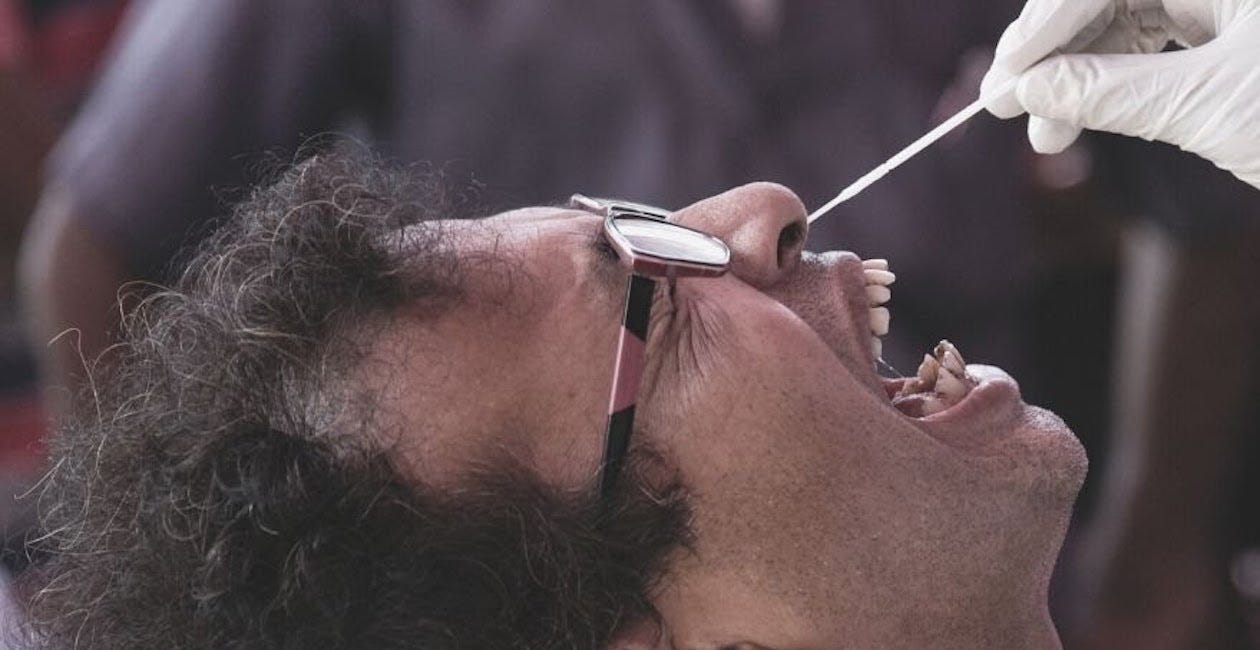Home › Forums › JAMES ROGUSKI › “We Need Stronger Surveillance” The WHO has declared Mpox (formerly known as monkeypox) to be a Public Health Emergency of International Concern (PHEIC). Dr. Maria Van Kerkhove stressed the need for stronger surveillance! James Roguski
- This topic is empty.
-
AuthorPosts
-
2024-08-14 at 23:26 #457532
 Nat QuinnKeymaster
Nat QuinnKeymaster“We Need Stronger Surveillance”
The WHO has declared Mpox (formerly known as monkeypox) to be a Public Health Emergency of International Concern (PHEIC). Dr. Maria Van Kerkhove stressed the need for stronger surveillance!
Aug 14, 2024
Please watch this 4 minute video excerpt from the WHO press conference that provides information was NOT clearly mentioned in the press release that was published by the WHO:

https://rumble.com/v5az0wd-dr.-maria-van-kerkhove-wants-stronger-surveillance.html

TEN questions that everyone should be asking:
- In previous outbreaks the vast majority of those infected were “men who have sex with men.” Why are the more recent outbreaks occurring in children?
- What is the evidence to support Dr. Maria Van Kerkhove’s claim that that “We do see new zoonotic transmission.”
- Dr. Maria Van Kerkhove clearly stated that there are many unknowns that must be researched. What is being done to clarify these unknown details regarding transmission and diagnosis?
- Has the Mpox virus every been properly isolated?
- Has the Mpox orthopox virus been proven to show that it is the cause of the symptoms associated with the disease that is also called Mpox?
- Is it possible that the skin lesions seen in affected people could be due to other causes, such as previous vaccinations, exposure to toxins, compromised immune systems or liver disfunction?
- What are the details requires to arrive at a differential diagnosis to ensure that the true cause of ?
- What are the details (specificity, sensitivity and primers used) of the PCR “test” that is being used to determine confirmed “cases”? Are these protocols as flawed as those used for COVID-19?
- Have the available “vaccines” and drugs been properly tested to determine that they are “safe and effective?”
- What are the WHO’s official “temporary recommendations?”

World Health Organization
Watch the entire press conference:

https://rumble.com/v5aysy5-who-monkeypox-pheic-press-conference.html
Press Release:
WHO Director-General Dr Tedros Adhanom Ghebreyesus has determined that the upsurge of mpox in the Democratic Republic of the Congo (DRC) and a growing number of countries in Africa constitutes a public health emergency of international concern (PHEIC) under the International Health Regulations (2005) (IHR).
Dr Tedros’s declaration came on the advice of an IHR Emergency Committee of independent experts who met earlier in the day to review data presented by experts from WHO and affected countries. The Committee informed the Director-General that it considers the upsurge of mpox to be a PHEIC, with potential to spread further across countries in Africa and possibly outside the continent.
WHO anticipates an immediate funding requirement of an initial US$ 15 million to support surveillance, preparedness and response activities.
On August 21, 2023, the WHO Director General issued standing recommendations regarding mpox. On August 14, 2024, the Director-General has extended the 2023 standing recommendations. These recommendations include the following:
16. Refrain from implementing travel-related health measures specific for mpox, such as entry or exit screening, or requirements for testing or vaccination.
20. Make mpox vaccines available for primary prevetion (pre-exposure) and post-exposure vaccination for persons and communities at risk of mpox, taking into account recommendations of the WHO Strategic Advisory Group of Experts on Immunization (SAGE).
https://cdn.who.int/media/docs/default-source/documents/ihr/mpox-standing-recommendations-082023.pdf

The United States CDC
August 7, 2024
The Centers for Disease Control and Prevention (CDC) is issuing this Health Alert Network (HAN) Health Update to provide additional information about the outbreak of monkeypox virus (MPXV) in the Democratic Republic of the Congo (DRC);
No cases of clade I mpox have been reported outside central and eastern Africa at this time.
Because there is a risk of additional spread, CDC recommends clinicians and jurisdictions in the United States maintain a heightened index of suspicion for mpox in patients who have recently been in DRC or to any country sharing a border with DRC (ROC, Angola, Zambia, Rwanda, Burundi, Uganda, South Sudan, CAR) and present with signs and symptoms consistent with mpox. These can include: rash that may be located on the hands, feet, chest, face, mouth, or near the genitals; fever; chills; swollen lymph nodes; fatigue; myalgia (muscle aches and backache); headache; and respiratory symptoms like sore throat, nasal congestion, and cough.
The United States has robust mpox testing capacity in state public health laboratories and several commercial laboratories, including clade-specific testing, sequencing, and/or flagging high-likelihood clade I MPXV samples (i.e., negative for clade II MPXV but positive for orthopoxvirus). In addition, CDC continues to receive a subset of MPXV samples from across the United States that were not differentiated during the initial diagnosis to test for MPXV clade and to look for mutations using genetic sequencing.
CDC is helping communities monitor the presence of both clades of MPXV in wastewater samples, including from select airports.
Consider getting vaccinated against mpox if you have risk factors and are eligible for vaccination.
CDC continues to recommend that people who are eligible for vaccination receive two doses of the JYNNEOS vaccine for the best protection.
People at risk for mpox who have only received one dose more than 28 days prior should receive a second dose as soon as possible. JYNNEOS vaccine is believed to protect against both mpox clades.
Treatment and Prevention
Promote mpox vaccination in your community to protect as many eligible people as possible from mpox.
https://emergency.cdc.gov/han/2024/han00513.asp
https://www.cdc.gov/poxvirus/mpox/vaccines/vaccine-recommendations.html


James Roguski
310-619-3055
JamesRoguski.substack.com/archive
All content is free to all readers.
All support is deeply appreciated.
source:“We Need Stronger Surveillance” – James Roguski (substack.com)
-
AuthorPosts
- You must be logged in to reply to this topic.


